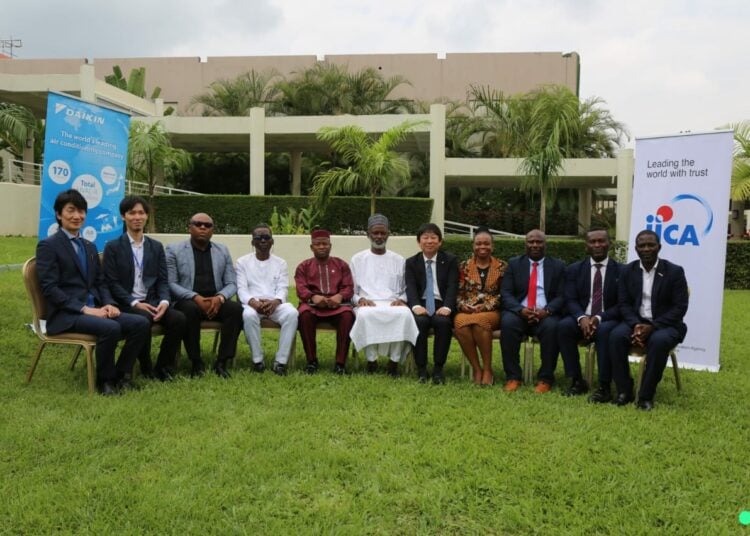Daikin, in collaboration with the Japan International Cooperation Agency (JICA), has launched a nationwide initiative to promote high-efficiency inverter air conditioners as a sustainable solution to Nigeria’s escalating energy demands.
According to Daikin, the launch event, held at the Abuja Continental Hotel, marked a significant step in driving energy savings and reducing greenhouse gas emissions by adopting modern cooling technology.
During the event, Daikin’s executive officer, Junichi Omori, stated the firm’s commitment to net-zero emissions by 2050 and highlighted the superior performance of air conditioners with inverter compressors that use low-GWP R32 refrigerants—technology shown to reduce electricity consumption compared to conventional systems.
JICA chief representative, Susumu Yuzurio, affirmed their commitment to supporting Nigeria’s energy transition by facilitating access to eco-friendly climate control solutions. The seminar is being held under a JICA scheme to encourage the application of innovative technologies and products by private companies in Japan to the socio-economic development of partner countries.
Speaking at the launch, Junichi Omori, Executive Officer, Daikin Industries Ltd., underscored Daikin’s long-term commitment to the Nigerian market and stated: “Nigeria is a country with ample potential in business and is characterized by stability, strong government initiatives, population growth, and economic growth. High-efficiency air conditioners are essential devices to curb Nigeria’s surging energy demand and contribute to reducing GHG emissions.”
Susumu Yuzurio, chief representative, JICA Nigeria Office, reaffirmed Japan’s commitment to supporting Nigeria’s energy transition when he said: “The Daikin team has conducted a study to evaluate the applicability and effectiveness of implementing high-efficiency inverter ACs to support energy conservation in Nigeria and align with climate action goals. We believe that the results of this demonstration will not only be a possibility of technology transfer but also a theme for future economic cooperation between Japan and Nigeria. Improving the efficiency of energy use will contribute to reducing government costs and reducing emissions in society, and ultimately lead to the benefit of the people.”





